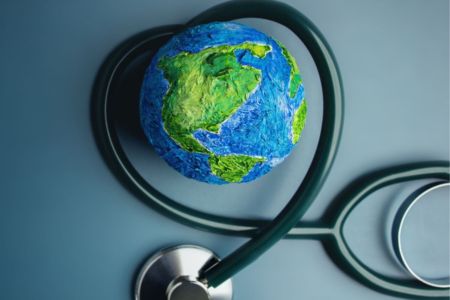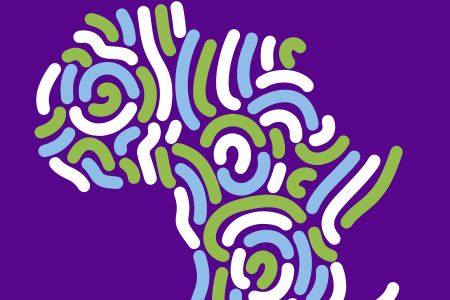Fellowship Opportunities
William N. Rom Climate Change & Health Fellowship
Applications for the 2025-2026 William N. Rom Climate Change & Health Fellowship are now closed.
Holsinger Pathfinder Fellowship
Applications for the 2025-2026 Fellowship are now closed.
Climate Change is arguably the single biggest threat to global health today. Rising temperature is evident throughout the word, but its effects on human health should be of particular concern to public health professionals. According to the World Health Organization, “between 2030 and 2050, climate change is expected to cause approximately 250,000 additional deaths per year, from severe weather including hurricanes and flooding, drought and malnutrition, dengue, cholera, and heat stress alone”. Climate change is also a driver of increased population displacement and migration, increased frequency and severity of natural disasters and changes in infectious diseases. Unfortunately, those who will be affected the most by climate change are those who are the least responsible for it.
The William N. Rom Fellowship in Climate Change and Health supports selected MPH students to deepen their understanding of the relationship between climate change and health. Fellows pursue extended projects over the course of the year and may have the opportunity to attend global conferences that focus on the intersection of climate change and health. The fellowship aims to equip a new generation of public health professionals with the knowledge and skills to generate climate change solutions that improve health and well-being. To learn more about the eligibility and application process, please click here.
Overview:
The Global and Environmental Health Scholars Program (the Program) supports MPH students from the Global Health and Environmental Public Health concentrations in addressing public health challenges through an Applied Practice Experience (APE) in low- and middle-income countries. This program provides eligible students with financial assistance to help cover travel expenses and other related costs during their APE. Its primary objective is to encourage students to seek out international practice experiences to gain valuable skills in cultural competence, adaptability, and cross-cultural communication. By supporting field-based practice opportunities, the Program provides students with a global- and environmental public health experience to become leaders in the field.
Funding:
Students completing international APEs can be awarded up to $3000. This award can be used to support travel-related expenses and other expenses that are specific to individual internships. Up to ten applicants will be selected for funding.
To learn more about the eligibility criteria and application process, please click here.
The fellowship program aims to support an individual from a low- or middle-Income country (LMIC) in Africa who is working in the health sector to pursue an Online Master of Public Health (MPH) degree. The fellowship includes financial assistance for tuition and related fees, allowing the selected fellow to make an immediate positive impact on their respective health systems without incurring substantial debt. The purpose of the fellowship is:
Offer tuition assistance for a selected student who demonstrates academic merit to pursue a Global Health Online MPH at the NYU School of Global Public Health.
Click here for more information on the Holsinger Pathfinder Fellowship.





